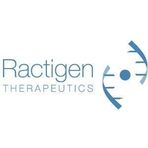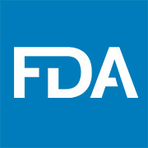Ractigen's RAG-17: A Beacon of Hope in ALS Treatment
September 12, 2024, 9:51 am

Location: China, Jiangsu, Suzhou City
Employees: 51-200
Founded date: 2017
Total raised: $30M
In the world of medicine, breakthroughs often emerge from the shadows of despair. Ractigen Therapeutics is shining a light on amyotrophic lateral sclerosis (ALS) with its latest development, RAG-17. This small interfering RNA (siRNA) therapy targets the Superoxide Dismutase 1 (SOD1) gene, a key player in a form of ALS that has long eluded effective treatment. The recent clinical trial results are a glimmer of hope for patients and families grappling with this devastating disease.
Conducted at Beijing Tiantan Hospital, the trial was led by Dr. Yilong Wang. It enrolled six patients with ALS-SOD1 mutations. The primary goal? To assess the safety of RAG-17. The results were promising. All patients tolerated the treatment well, with only mild adverse events reported. This is crucial. Safety is the bedrock of any new therapy. The trial included comprehensive evaluations—laboratory tests, vital signs, and electrocardiograms—confirming a favorable safety profile.
But safety alone is not enough. The trial also hinted at potential efficacy. Early signs of clinical benefit emerged, with notable changes in key biomarkers. These findings align with Ractigen's preclinical data, which showed significant therapeutic effects in animal models. In these studies, RAG-17 delayed disease progression and improved survival rates. This dual promise of safety and efficacy is a rare combination in the realm of ALS research.
Ractigen's commitment to advancing RAG-17 is unwavering. The company’s founder and CEO, Dr. Long-Cheng Li, expressed optimism about the results. The company aims to transform these initial findings into a viable treatment option for ALS patients. The journey from trial to treatment is fraught with challenges, but Ractigen is determined to navigate this path.
The significance of these results extends beyond the laboratory. RAG-17 has already garnered Orphan Drug Designation from the U.S. Food and Drug Administration (FDA). This designation is a crucial step, providing incentives for the development of treatments for rare diseases. In March 2023, RAG-17 received this designation, paving the way for clinical trials in the U.S. In May 2024, the Center for Drug Evaluation in China also approved the Investigational New Drug (IND) application for clinical trials. This international support underscores the global interest in RAG-17 as a potential game-changer in ALS treatment.
The upcoming presentations at major conferences will further amplify Ractigen's message. The 27th National Conference of Neurology in China, Neuroscience 2024 in Chicago, and the 35th International Symposium on ALS/MND in Montreal will serve as platforms to share these findings with the medical community. These gatherings are not just academic; they are lifelines for patients and families searching for hope.
ALS is a cruel disease. It robs individuals of their ability to move, speak, and ultimately breathe. The average life expectancy after diagnosis is a mere 3 to 5 years. Symptoms begin subtly—muscle cramps, twitching, and weakness—before escalating into paralysis and respiratory failure. The SOD1 gene mutations account for a significant portion of familial and sporadic ALS cases. For these patients, RAG-17 represents a potential lifeline.
Ractigen Therapeutics is not just another player in the pharmaceutical landscape. The company is pioneering innovative oligonucleotide drugs and therapeutic approaches. Their proprietary SCAD™ delivery platform enhances the delivery of RAG-17 into the central nervous system. This is critical for treating neurodegenerative diseases, where effective delivery can make all the difference.
The road ahead is long. Clinical trials are complex and time-consuming. Yet, the initial results from the Investigator-Initiated Trial provide a strong foundation. Ractigen's commitment to advancing RAG-17 could lead to a new chapter in ALS treatment. The hope is palpable. For patients and families affected by ALS, every bit of progress is a step toward a brighter future.
In the grand tapestry of medical research, RAG-17 is a thread of hope woven into the fabric of ALS treatment. As the clinical data unfolds, the world watches closely. Will Ractigen's innovation translate into a breakthrough therapy? Only time will tell. But for now, the light shines a little brighter for those battling ALS. The journey continues, and with it, the promise of new possibilities.
Conducted at Beijing Tiantan Hospital, the trial was led by Dr. Yilong Wang. It enrolled six patients with ALS-SOD1 mutations. The primary goal? To assess the safety of RAG-17. The results were promising. All patients tolerated the treatment well, with only mild adverse events reported. This is crucial. Safety is the bedrock of any new therapy. The trial included comprehensive evaluations—laboratory tests, vital signs, and electrocardiograms—confirming a favorable safety profile.
But safety alone is not enough. The trial also hinted at potential efficacy. Early signs of clinical benefit emerged, with notable changes in key biomarkers. These findings align with Ractigen's preclinical data, which showed significant therapeutic effects in animal models. In these studies, RAG-17 delayed disease progression and improved survival rates. This dual promise of safety and efficacy is a rare combination in the realm of ALS research.
Ractigen's commitment to advancing RAG-17 is unwavering. The company’s founder and CEO, Dr. Long-Cheng Li, expressed optimism about the results. The company aims to transform these initial findings into a viable treatment option for ALS patients. The journey from trial to treatment is fraught with challenges, but Ractigen is determined to navigate this path.
The significance of these results extends beyond the laboratory. RAG-17 has already garnered Orphan Drug Designation from the U.S. Food and Drug Administration (FDA). This designation is a crucial step, providing incentives for the development of treatments for rare diseases. In March 2023, RAG-17 received this designation, paving the way for clinical trials in the U.S. In May 2024, the Center for Drug Evaluation in China also approved the Investigational New Drug (IND) application for clinical trials. This international support underscores the global interest in RAG-17 as a potential game-changer in ALS treatment.
The upcoming presentations at major conferences will further amplify Ractigen's message. The 27th National Conference of Neurology in China, Neuroscience 2024 in Chicago, and the 35th International Symposium on ALS/MND in Montreal will serve as platforms to share these findings with the medical community. These gatherings are not just academic; they are lifelines for patients and families searching for hope.
ALS is a cruel disease. It robs individuals of their ability to move, speak, and ultimately breathe. The average life expectancy after diagnosis is a mere 3 to 5 years. Symptoms begin subtly—muscle cramps, twitching, and weakness—before escalating into paralysis and respiratory failure. The SOD1 gene mutations account for a significant portion of familial and sporadic ALS cases. For these patients, RAG-17 represents a potential lifeline.
Ractigen Therapeutics is not just another player in the pharmaceutical landscape. The company is pioneering innovative oligonucleotide drugs and therapeutic approaches. Their proprietary SCAD™ delivery platform enhances the delivery of RAG-17 into the central nervous system. This is critical for treating neurodegenerative diseases, where effective delivery can make all the difference.
The road ahead is long. Clinical trials are complex and time-consuming. Yet, the initial results from the Investigator-Initiated Trial provide a strong foundation. Ractigen's commitment to advancing RAG-17 could lead to a new chapter in ALS treatment. The hope is palpable. For patients and families affected by ALS, every bit of progress is a step toward a brighter future.
In the grand tapestry of medical research, RAG-17 is a thread of hope woven into the fabric of ALS treatment. As the clinical data unfolds, the world watches closely. Will Ractigen's innovation translate into a breakthrough therapy? Only time will tell. But for now, the light shines a little brighter for those battling ALS. The journey continues, and with it, the promise of new possibilities.
